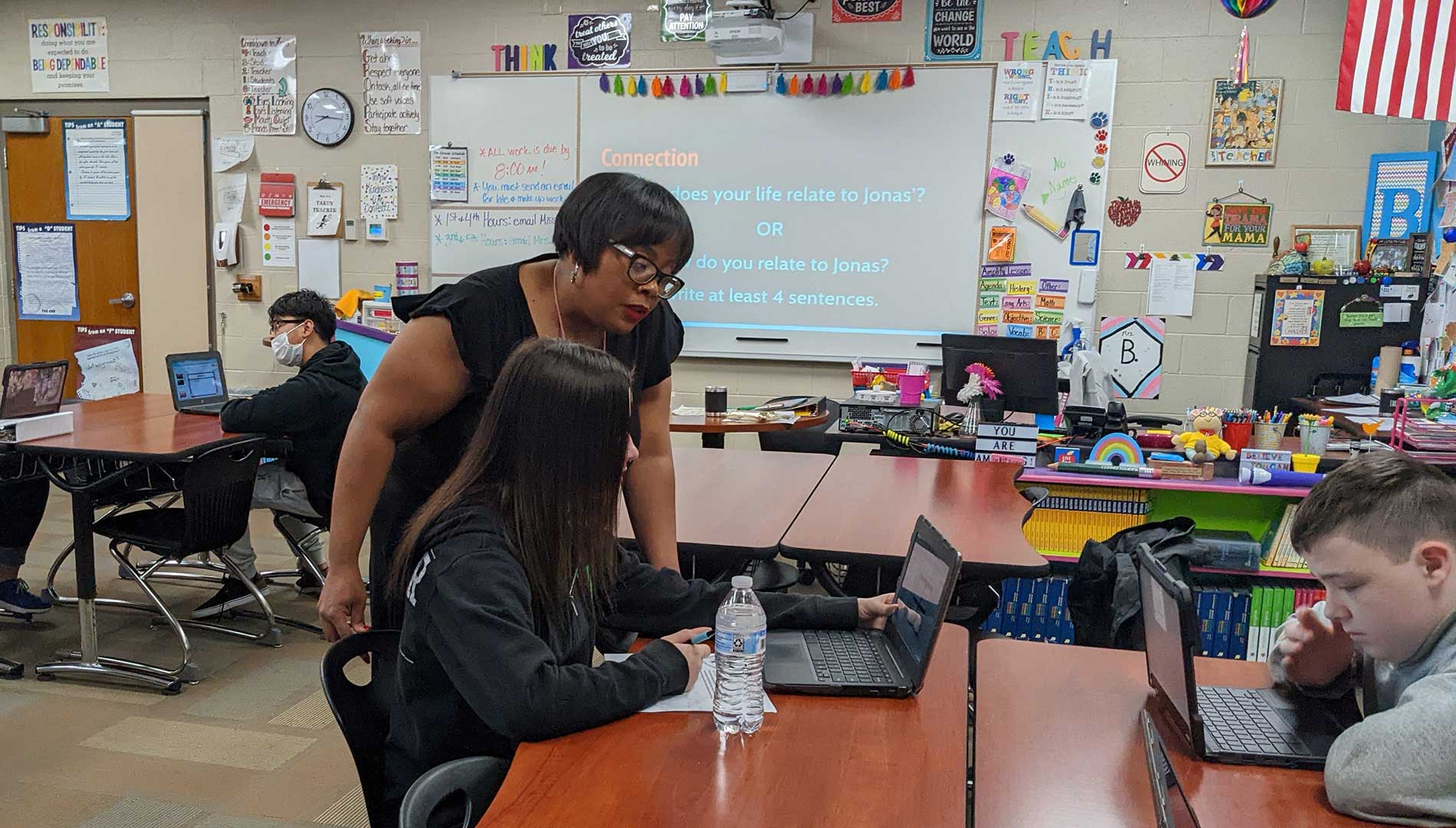School of Education Mission Statement
The University of Illinois at Springfield School of Education upholds the ideal of education as a service toward the advancement of individuals, communities, organizations, and society. The University of Illinois at Springfield School of Education prepares teachers, administrators, researchers, and scholars to serve, advocate, and engage with local, national, and global communities from asset-based perspectives. With social justice and anti-racist principles as a foundation, we achieve this mission through the integration of theory, scholarship, leadership, and praxis. We prepare educational leaders to work across the developmental range, and to conduct equity-based research on issues of curriculum and instruction, educational policy, and social justice.
Vision
Inspiring teachers to change the world…
School of Education Goals
Goal 1. Develop and deliver highly competitive, rigorous, research-intensive academic programs with social justice foci.
Goal 2. Improve research quality, productivity, and impact for faculty, students, and communities.
Goal 3. Create a positive, productive, equitable, and efficient working and learning environment for all stakeholders.
Goal 4. Ensure the cultural and global competence of its personnel and students.
Goal 5. Increase and nurture School of Education outreach within and beyond the UIS community: locally, nationally, and globally.
Goal 6. Produce graduates with the Knowledge, Dispositions and Skills to become effective educators and leaders locally, nationally and internationally.
COPE Themes
- I Quality Teaching and Professional Practice
- II Public Engagement
- III Technology
- IV Diversity
TEP Learner Outcomes
- Demonstrate mastery of content, technological advances, and pedagogical expertise in the content and grade levels in which they teach. (COPE Theme I, III)
- Establish a safe, inclusive, and respectful learning environment for a diverse population of students. (COPE Theme IV)
- Plan and deliver effective instruction, supported by appropriate technological applications, and create an environment that facilitates learning for all students. (COPE Themes I, III, IV)
- Demonstrate high standards for professional conduct. (COPE Themes I-IV)
- Partner, collaborate, and engage with families and/or communities to develop relationships and build networks of support for student success. (COPE Theme III)
- Actively advocate for students, families, and schools to support equity and social justice. (COPE Themes III, IV)
- Apply research to improve practice and student learning. (COPE Theme I)
EDL Learning Objectives
- Prepare educational leaders for leadership positions in a variety of organizational contexts. (COPE Theme I)
- Prepare educational leaders to meet state and national standards. (COPE Theme I, III)
- Improve practices in education. (COPE Theme I, II, IV)
- Prepare educators to pass appropriate state testing for career movement. (COPE Theme I)
Strategic Compass Pillars
- Premier Educational Experience (PEE)
- World-class Teaching (WCT)
- Personal Attention (PA)
- Experience Engaged (EE)
Strategic Compass Values
- Student-focused Teaching and Learning: We place student development – fostered through meaningful interactions among students, faculty, staff and the community – at the core of all University activities.
- Integrity: We conduct ourselves with honesty, professionalism and respect for others, accepting responsibility for the ethical consequences of our ideas and actions.
- Inquiry: We seek to understand the world around us through the mastery of core skills of perception, analysis and expression, through the acquisition of knowledge and through the pursuit of scholarship that is challenging and significant.
- Civic Engagement: We build meaningful relationships that enable us to both learn from and contribute to our local and global communities.
- Diversity: We embrace diversity in all its forms as both an intellectual commitment and a social responsibility, and we foster an inclusive culture that recognizes the needs and contributions of every individual.
- Strategic Thinking: We are a proactive learning organization committed to continuous improvement, evidence-based decision-making and innovation.
- Accountability: We translate intentions into actions via shared governance and fiscal stewardship, holding decision-makers responsible to our students, colleagues and other stakeholders.
